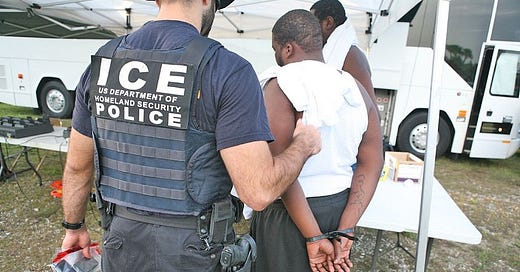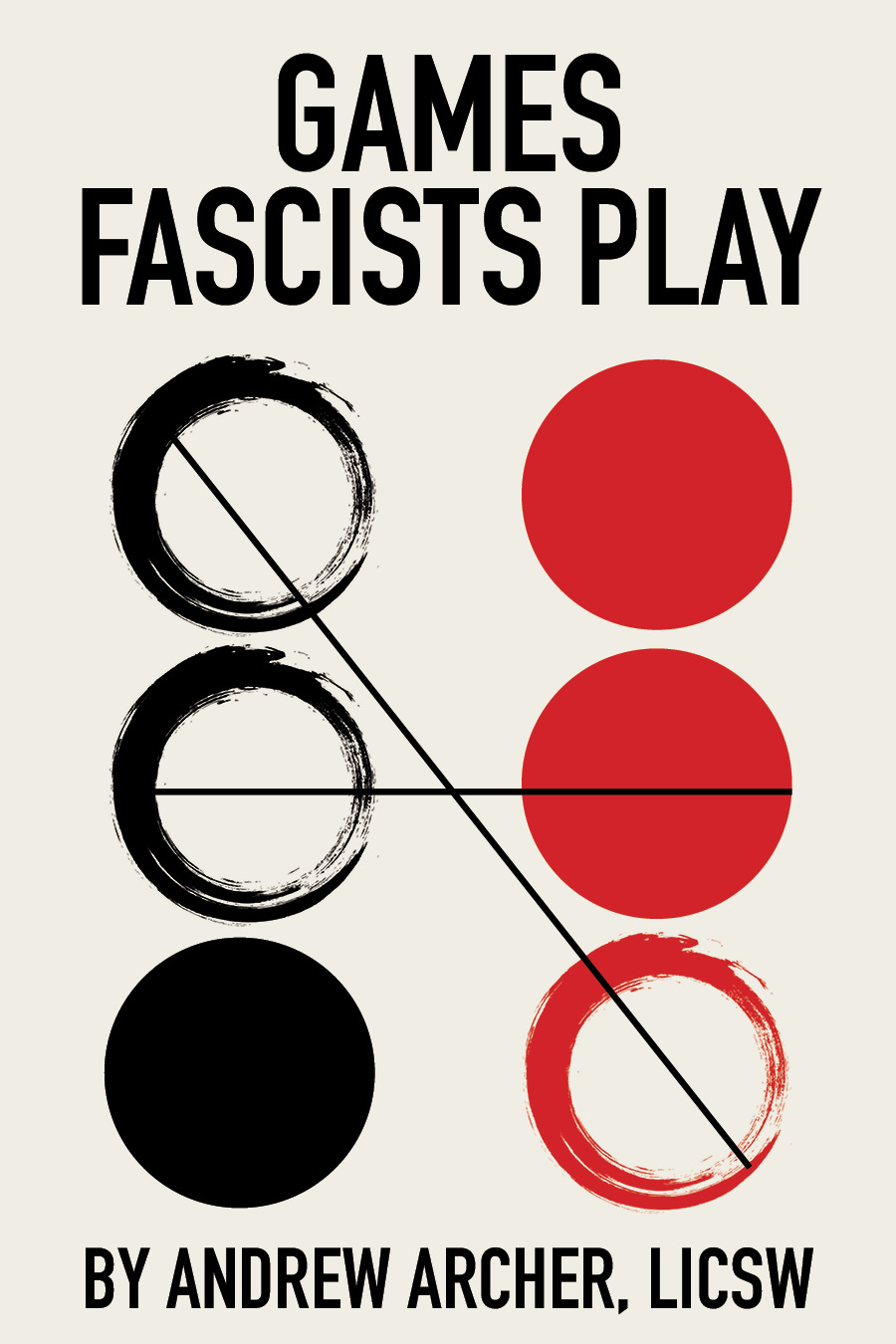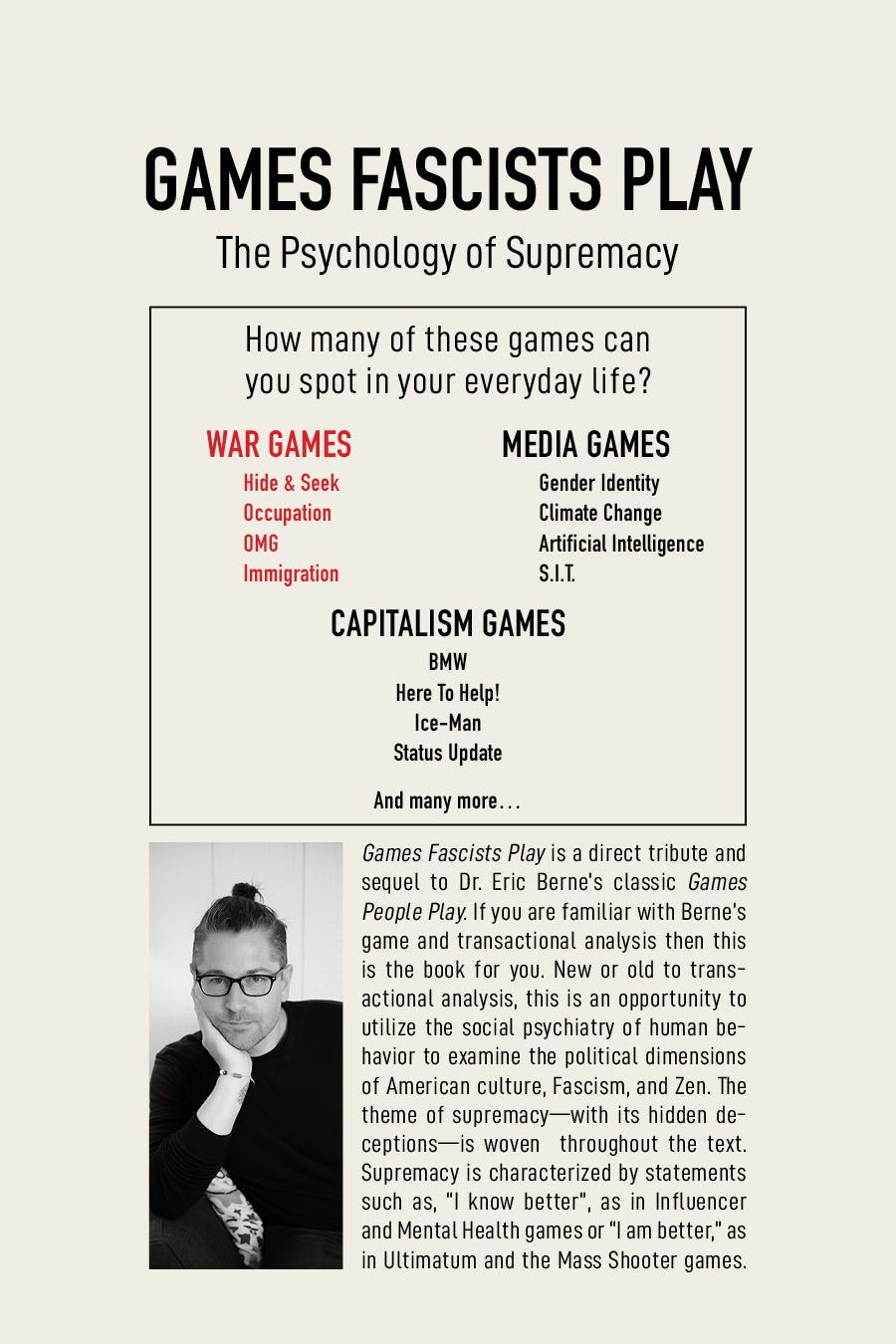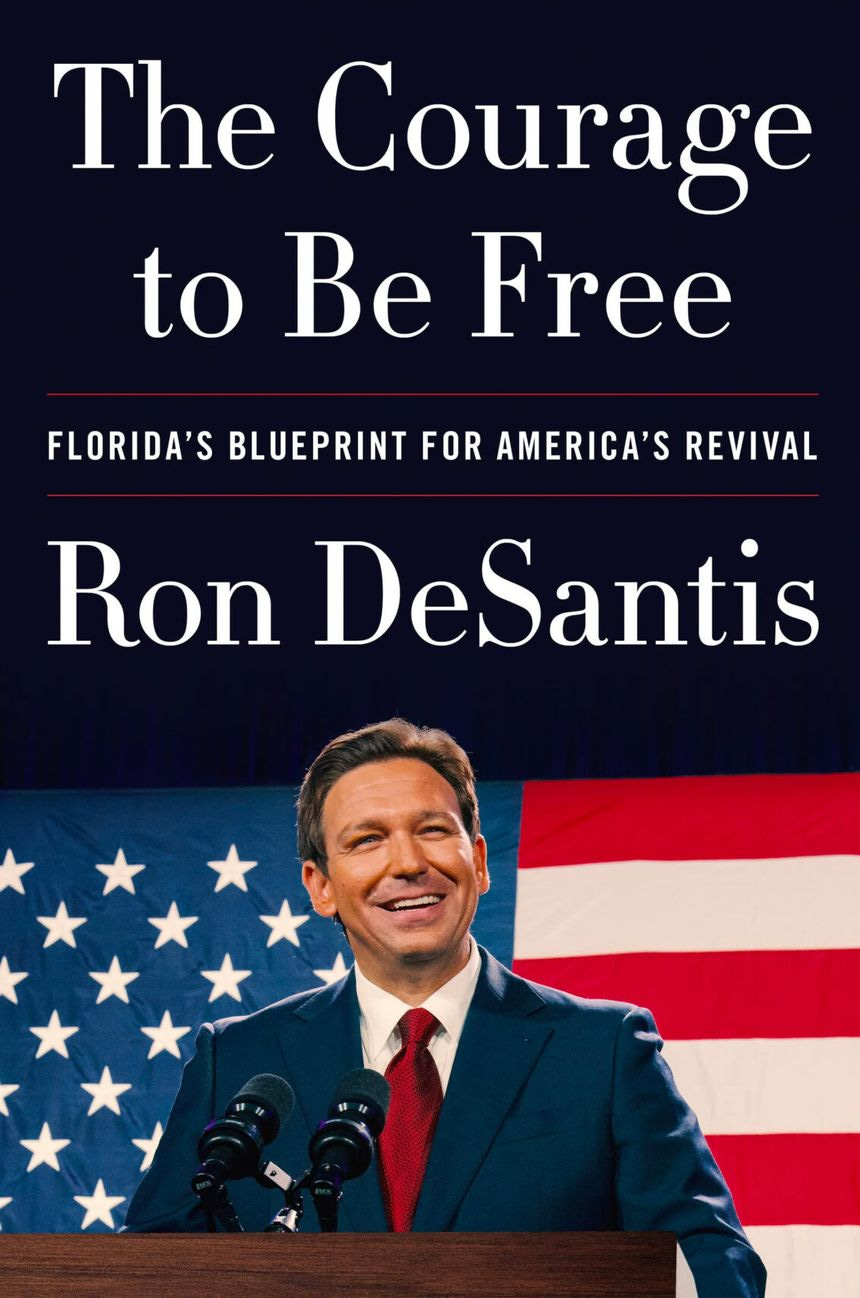**In game analysis, “White” opens with a “con,” which is the first move. This invitation is made by the initiator or agent, i.e., White. The “gimmick” is the weakness in “Black,” which leads Black to respond to White’s con.**
IMMIGRATION
It is important to realize that certain “genocidal” aspects of human nature have remained unchanged during the past five thousand years regardless of any genetic evolution which has taken place during this period; they also remain immune to environmental and social influences. One of these is the prejudice against darker people which has persisted unchanged since the dawn of recorded time in ancient Egypt, whose “miserable people of Cush” are still represented in oppressed Negro populations throughout the world. [15] The other is “search and destroy” warfare.
Eric Berne, What Do You Say After You Say Hello?
Set up: Ain’t Immigrants Awful? … Yeah, If It Weren’t For Them this country would be great again!
Clinical explanation: The clinical version of Immigration has the element of supremacy, while the political game adds xenophobia and racism. The psychotherapy game is most prevalent in the first-degree form with unmarried couples who live together. For example, the despairing Miss White comes to therapy and adamantly claims that her boyfriend is a “slob” (Awful). Her description of him utilizes absolutes such as “always,” e.g., leaves wrappers and dirty dishes out, and “never,” e.g., takes out the trash. Like the political variant of the game, the myth of Mr. Black is built from the stereotypes of men in general (“He never puts the toilet seat down!”), which puts him in an inferior position to the superiority of Miss White.
The two forms of the game utilize the pejorative Them (e.g., All Men Are Beasts) as the designation of Awfulness. Like the political variant of the game, White manufactures a sense of fear and despair coming both from within (e.g., the household) and from without (e.g., “What kind of a father would I be?”). On the psychological level, it is as if Miss White is conveying that Mr. White is not worthy of citizenship in her domestic society.
In the interpersonal form, Immigration involves a disruption of the domesticated household economy. For example, when there is an infidelity, Miss White will say of their partner, “If It Weren’t For Them.” Mr. Black is the Them who partook in the concealed relationship. However, this declaration minimizes Miss White’s role in the game. In the political variant of Immigration, the con is based on a myth that immigrants hurt the nation-state and its economy.
In addition to the various examples of Awfulness that Miss White provides, she adds that Mr. Black allows the toilet paper to roll backward off the holder instead of a forward position that would allow for the waterfall-effect of the paper. If she mentions trivialities as such, she is playing Blemish, which is how authoritarians separate and critique ethnicities to avoid class consciousness, e.g., Hitler’s “Not 100% Aryan.” 1
The Immigration game needs to be deciphered from the War game Hide & Seek. With Immigration, Miss White is not claiming that her boyfriend has engaged in domestic terrorism. Instead, she conveys to Dr. Black that Mr. White is an enemy of the domestic state. The condemnation of Mr. Black is irrelevant to her specific treatment process, e.g., chronic depression, drug abuse, or dependency issues. This denigration of Mr. Black shields her from dealing with her own insecurities and phobias. This is the essence of Immigration: degrading the “other” to ascend in status. It is the weaponization of fear and despair to grab power.
Original game(s): In the beginning of Games People Play, Eric Berne introduces the concept of games with a typical game called If It Weren’t For You (IWFY). He refers to this as the most common game played by marital couples. The description finds a restricted Mrs. White who has unconsciously selected a “domineering man for a husband.” [iii] Mrs. White describes her husband as a controlling partner, which places her in the position “to complain that she could do all sorts of things “if it weren’t for you”.” 2 On the surface, the implication is that Mr. White has forbidden Mrs. White to be independent. In actuality, he has protected her from “even becoming aware of her fears.” 3 His con is that he secretly fears desertion and is too ashamed to admit it. His prohibitions of Mrs. White’s behavior are counterphobic for Mr. White, i.e., fears of desertion.
Berne (1964) maps out the transaction with Mr. White saying, “You stay home and take care of the house.” Mrs. White’s counter is, “If it weren’t for you, I could be out having fun.” 4 What occurs on the psychological level is quite different:
Mr. White: “You must always be here when I get home. I’m terrified of desertion.”
Mrs. White: “I will be if you help me avoid phobic situations.” 5
Mrs. White repeatedly states that Mr. White is not letting her do what they want. Essentially, Miss White says, “If It Weren’t For my husband…” then she could do the things she wanted to do to be happy. Because Mrs. White is afraid to do what she most wants, the game is counterphobic. The domineering husband “protects” her from this insecurity (and protects himself). The aim of the game is either reassurance (“It’s not that I’m afraid, it’s that they won’t let me”) or vindication (“It’s not that I’m not trying, it’s that they hold me back”). 6
Therefore, Mrs. White sets up a triangulation with Dr. Black and Mrs. White’s tyrannical partner (Mr. Black). Mrs. White puts themselves in both the victim and persecutor roles to appeal to Dr. Black in the hopes of his rescue. Unlike the Capitalism game of Be Mr. Wonderful (BMW), Mr. Black is not Wonderful he is “Mr. Awful.” This allows Mrs. White to structure the therapy hours de-emphasizing their own insecurities and problems, e.g., obtaining a female friendship based on cooperation. Mrs. White emphasizes how Mr. Black is the source of the problem, which is often complemented by a game of Mental Health (see Media games): Mr. Black is labeled a narcissist, drug addict, control freak, borderline, bipolar, etc. Mrs. White’s psychological analysis of Mr. Black is an invitation into the IWFY game: “He’s Mr. Awful.”
Therapists have an imperative to “help” the patient. Therefore, the therapist must realize their weakness to play a role in this game. The so-called “helper” will tend to operate from the superior position as the rescuer role. Therefore, the therapist will operate as either a good parent, “They are such a narcissist, you poor thing,” or a vengeful parent, “You should leave him…get a divorce…what are you waiting for?” Both roles undermine the capacity for Mrs. White to think for themselves, which keeps her in a victim position. This is the aim of Mrs. White’s: If It Weren’t For Them ensures that Mrs. White does not have to deal with her own fears and insecurities. Maintaining the status quo of the relationship protects Miss White from confronting their own fears of aloneness and sexual intimacy.
Thesis: In her book on mass incarceration, Caught: The Prison State and the Lockdown of American Politics, Marie Gottschalk in part describes the mobilization of war on immigrants in the US. She notes how public figures such as politicians are retrofitting the “war on crime and the war on drugs” to use law enforcement strategies “and inflammatory rhetoric” against immigrants. 7
Therefore, the political version of Immigration combines the Media game Ain’t It Awful (“The border crisis!”) with War games of white supremacy: If It Weren’t For Them. The Immigration game is used to weaponize citizen fear and despair to grab power. In the game of Ain’t It Awful (see Media games), the shadowy They is not clearly defined. In Immigration, the Them is explicitly defined as “other”, i.e., All Immigrants Are Beasts. This supremacist game cuts across all three pillars of fascism noted in this text. If It Weren’t For Them is at the root of militarism and imperialism, which relies on a symbiosis of war games, capitalism games, and media games.
Immigration is part of the family of games that includes Hide & Seek. These games rely on a reactionary politics of fear and despair used against a supposed enemy. However, in Immigration, the “enemy” is not a supposed terrorist, but a stereotyped group of people who are de-humanized. For example, the United States nineteenth and twentieth-century eugenics movement said, “If It Weren’t For…the Chinese,” to pass the nation’s most draconian immigration acts of 1917 and 1924. These exclusionary laws criminalized Chinese immigrants and codified societal racism and xenophobia into law. [x] In Predatory Data, Chan (2025) describes how the US anti-Chinese sentiment and policies were meant to “protect superior classes from broadening degenerate populations.” 8
By 1917, the exclusions culminated further to include a broad list of immigrant undesirables: alcoholics, anarchists, contract laborers, epileptics, feebleminded persons, idiots, illiterates, imbeciles, paupers, persons afflicted with contagious diseases, persons being mentally or physically defective, persons with constitutional psychopathic inferiority, political radicals, polygamists, and vagrants—all viewed as biological and social expenses to society. 9
Eugenics started to reverse due to the naked championing of eugenics in 1939 by Adolph Hitler. During WWI the name of the US game changed to, “If It Weren’t For Bolsheviks.” Specifically, anti-Bolshevism found the enemy as simultaneously internal (communists) and international (Jewish conspiracies). 10 Currently, in the U.S., there is no longer a real Left to decry.
In his book, The Courage to Be Free, Florida governor Ron Desantis outlines his hatred of secular culture, woke ideology, the left, Marxists, open borders, big tech, and diversity, equity, and inclusion (DEI) to name a few examples. The original title for the book should have been “The Courage to Be White” or “The Courage to Be an Elite.” In the text, DeSantis articulates the fear and despair of most US citizens for his own means: to grab power. In this way, Desantis mimics the nineteenth-century Germanic ideology that sparked rebellion against liberal democracy and instead “for authority, not against authority.” 11
DeSantis’s war on liberal and secular aspects of American culture is a game for his own executive power and a nod to ethnonationalism. As Mussolini and Hitler exhibited in the lead up to the second world war, If It Weren’t For Them (e.g., communists, Jews) mobilized fearful and despairing citizens for imperialism: Now I’ve Got You, You Son of a Bitch!
Political reactionaries garner attention and establish power by identifying an “other” to exploit as they play Be Mr. Wonderful (BMW). For example, Osama bin Laden “harnessed legitimate grievances” to channel the fear, anger, and despair “toward irrelevant foes.” 12 Parenti (2002) notes how Adolph Hitler used the hardships of high rates of unemployment, rising inflation, and poverty “toward irrelevant enemies,” 13 i.e., communists, Jews, homosexuals, etc.
When George Bush II won election in 2000, the liberal consternation was “If It Weren’t For Third Party Candidates!” Donald Trump began his presidential bid in 2015 by saying “If It Weren’t For Mexicans.” He continues to play the game by inserting “the radical left,” “Iran,” and “China” for the role of Them. Similarly, Hilary Clinton played “If It Weren’t For Bernie” before losing the 2016 presidential election. To save face after she lost the election, Hilary continued the game with a new Them: “If It Weren’t For Russian Collusion.” MIT graduate Bibi Netanyahu and his radical Zionists legitimize their ethnonationalist supremacy project and war crimes with “If It Weren’t For Hamas” (all Palestinians) to maintain power and make a land grab (“Greater Israel”).
The Immigration game emphasizes the myth of an external “invasion” of immigrants who are de-humanized under labels such as “illegal aliens.” Twentieth-century fascism created the sense of an exotic other within the nation. In the twenty-first century, political reactionaries are concerned with anyone who is a non-U.S. citizen with extra melanin:
In the early twenty-first century, there are no longer significant Communist parties anymore. Instead, the danger is more completely exteriorized around foreigners, illegal migrants, refugees, asylum seekers, and interlopers of all sorts. 14
The lie of the Immigration game is that “undocumented aliens” (aka non-white folks) are to be feared both as the cause of the average citizens’ despair of jobs and benefits being stolen and the hopelessness of the future (crime, race suicide). The game is a precursor to war by way of identifying the “alien.” Left out of the discussion is the historic fact that human migrations have “saved humanity from famine, hunger, and wars.” 15
A century of convincing research findings that influxes of immigrants tend to reduce—not increase—crime rates has been no match against politicians exploiting false stereotypes that equate more immigrants with more crime. 16
The politician’s response to this “invasion” is to “deport” or “build a wall” and “secure the border” in the name of “national security.” For some reason, this security issue is only on the Mexico border (“Thanks for the tech, Israel!”) and not the Canadian border. The emphasis on the division of land gives cover to racial motives for blocking certain ethnicities from entering. The militarized security is first tested on populations for global customers. For example, in 2021 and 2022, the use of “autonomous surveillance robots” simultaneously appeared on the Israel-Gaza border and US-Mexico border. 17 Ecological catastrophes will worsen the “border crisis”, i.e., fear-based politics preying on citizen despair, as diminishing resources facilitate economic protectionism and nation-state isolationism (see Climate Change).
Robert Paxton (2005) notes how fascisms find existing themes in the nation’s culture “that are best capable of mobilizing a mass movement of regeneration, unification, and purity,” which is then “directed against liberal individualism and constitutionalism and against Leftist class struggle.” 18 Additionally, the precondition for fascism is the “legitimation of violence” against the enemy from within (e.g., immigrant, Jew). For Paxton, this legitimizing of violence “brings us close to the heart of fascism.” 19
With no “Left” left in the U.S. and an increasing number of so-called liberals and leftists echoing the call to “secure the border,” the only thing missing is a mass movement capitalizing on this myth of the exotic and “alien” other. For Wilhelm Reich, nationalistic fascism “transfers sexual sensuality to the “alien race,” which is relegated to an inferior status in this way.”
From now on, the depreciation of the “alien race” coincides organically with latter-day patriarchal imperialism. 20
Aim: Whether in psychotherapy or politics, the Immigration game is a fake war with a demonized enemy (e.g., boyfriend, immigrant) who is altering the balance of the economy (e.g., household, employment rates). At the political level in the U.S., this game has been played in a bipartisan manner to increase the captives in a militarized America.
The post-9/11 environment across the US-Mexico border was a rapid acceleration of a military-style state where migrants and Native Americans were framed as threats to be managed and harassed. A record number of migrants died in 2021 and 2022 along the US-Mexico border, at least 750 people. 21
Immigration is a fear-based game meant to bolster the existing penal colony and normalize dictatorial ambitions. For the Trump administration, Immigration and Customs Enforcement or ICE has the mission (military language) “to protect America from the cross-border crime and illegal immigration that threaten national security and public safety.” 22 This is the con. In fact, ICE functions as Trump’s black shirts who are tasked with roaming the streets to deport those who dissent from U.S. foreign policy, e.g., on Israel.
However, the Immigration game is played on both sides of the political aisle. For example, in 2013, under a Democrat majority in the Senate and with an Influencer president (O-Bomb-a), an anti-immigrant bill was passed. This was despite immigration being a civil (not criminal) code violation. The 2013 bill allocated $46 billion to “secure the border” by 2021 “through stepped-up law enforcement and military-style operations.” 23In the 1990s, then President Bill Clinton and then Senator Joe Biden used the same playbook to drastically expand mass incarceration: If It Weren’t For Super Predators.
Since the mid-1990s, the immigration enforcement system has morphed into a vast and ever-growing web of Border Patrol agents, police, prosecutors, courts, jails, prisons, and detention centers with a well-documented history of human rights violations and procedural shortcuts… 24
Antithesis: The aim of the Immigration game is to normalize the occupation of a demonized other. This is not to say that Mr. White is not a slob at home or that globalist corporations do not love exploiting immigrant or refugee labor to increase profits. To understand the Immigration game is to understand the function of enclosures, citizen despair, subconscious and conscious supremacy, and power dynamics. The U.S. culture is militarized around this myth by erecting walls, amping up surveillance, tracking biometric data, expanding the functions of fusion centers, and building AI-facial recognition.
As noted above, Immigration merges with Climate Change (see Media games) in a functional manner. As refugees flee from the devastation of climate emergencies, nations hermetically seal themselves within militarized fortresses and blame the problems on the “alien” other: “If It Weren’t For Them!” In the U.S., securing the U.S.-Mexico border is ensuring mass murder. For example, since the 1990s, over seven thousand dead bodies have been discovered alongside the U.S.-Mexico border. 25 Chaos, disruption, and violence are forces of insecurity oligarchs weaponize to manufacture consent for the actions of military-industrial complexes.
In The Palestine Laboratory, Loewenstein (2023) gives the comparison of reactionary policies to the climate crisis versus proactive measures. The author notes how Israel’s defense sector has benefitted from adaptations to climate change. The society has essentially ghettoized the Israeli population: “What this means in practice is higher walls and tighter borders, greater surveillance of refugees, facial recognition, drones, smart fences, and biometric databases.” He adds,
By 2025, the border surveillance industrial complex is estimated to be worth US$68 billion, and Israeli companies like Elbit are guaranteed to be among the main beneficiaries. 26
The question for the racist and xenophobic politician or for the insecure Miss White is to ask what they will do about the real issues being faced. In the preface to The Mass Psychology of Fascism, Wilhelm Reich instructs us to watch for the manifestation of the fascist character. Reich states that “when he is seen puffing himself up and has his chops full of slogans,” we must respectfully and simply ask them publicly about their concrete plans:
What are you doing in a practical way to feed the nation, without murdering other nations? What are you doing as a physician to combat chronic diseases, what as an educator to intensify the child’s joy of living, what as an economist to erase poverty, what as a social worker to alleviate the weariness of mothers having too many children, what as an architect to promote hygienic conditions in living quarters? Let’s have no more of your chatter. Give us a straightforward, concrete answer or shut up! 27
ANALYSIS
Thesis: We have a security issue…Be afraid of the Awful Them [while I trap you].
Antithesis: Focus on the real and pressing issues.
Aim: The demonization of an “enemy” to gain or maintain power.
Roles: Aggressor, Victim, Bystander (Media game)
Dynamics: Insecurity, fear, despair, racism, xenophobia, white supremacy.
Examples: (1) ICE. (2) Insecure partner. (3) War.
Social Paradigm: Parent-Parent
“Illegals [Them] must always follow the proper procedure. A country needs secure borders.”
“If it weren’t for them, this country could be great.”
Psychological Paradigm: Child-Child
“I’m terrified of dark-skinned people.”
“We don’t want [white] race suicide.”
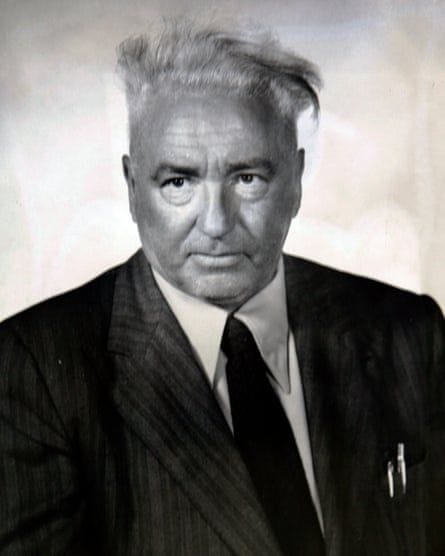
p. 112, Berne, E. (1964). Games people play: The psychology of human relationships. New York, NY: Grove Press, Inc.
p. 50, Berne, E. (1964). Games people play: The psychology of human relationships. New York, NY: Grove Press, Inc.
p. 50, Berne, E. (1964). Games people play: The psychology of human relationships. New York, NY: Grove Press, Inc.
p. 54, Berne, E. (1964). Games people play: The psychology of human relationships. New York, NY: Grove Press, Inc.
p. 50, Berne, E. (1964). Games people play: The psychology of human relationships. New York, NY: Grove Press, Inc.
p. 54, Berne, E. (1964). Games people play: The psychology of human relationships. New York, NY: Grove Press, Inc.
p. 217, Gottschalk, M. (2015). Caught: The prison state and the lockdown of American politics. Princeton University Press: Princeton, NJ.
Chan, A.S. (2025). Predatory data: Eugenics in big tech and our fight for an independent future. Oakland: University of California Press.
p. 55, Chan, A.S. (2025). Predatory data: Eugenics in big tech and our fight for an independent future. Oakland: University of California Press.
p. 70, Editor, Rosenfield, G. D. & Editor, Ward, J. (Eds.). (2023). Fascism in America: Past and present. Cambridge University Press: New York. From the chapter, “Liberalism in Crisis.”
p. 225, Stern, F. (1961/1974). The politics of cultural despair: A study in the rise of the Germanic ideology. University of California Press: Los Angeles, California.
p. 46, Parenti, M. (2002). The terrorism trap: September 11 and beyond. City Lights Books: San Franscico.
p. 46, Parenti, M. (2002). The terrorism trap: September 11 and beyond. City Lights Books: San Franscico.
p. 70-71, Editor, Rosenfield, G. D. & Editor, Ward, J. (Eds.). (2023). Fascism in America: Past and present. Cambridge University Press: New York. From the chapter, “Liberalism in Crisis.”
p. 10, Napoleoni, L. (2024). Technocapitalism: The rise of the new robber barons and the fight for the common good. Seven Stories Press: New York.
p. 218, Gottschalk, M. (2015). Caught: The prison state and the lockdown of American politics. Princeton University Press: Princeton, NJ.
p. 141, Loewenstein, A. (2023). The Palestine laboratory: How Israel exports the technology of occupation around the world. Verso: New York.
p. 40, Paxton, R. (2005). The anatomy of fascism. Vintage Books: New York.
p. 84, Paxton, R. (2005). The anatomy of fascism. Vintage Books: New York.
p. 80, Reich, W. (1980). The mass psychology of fascism. Ed. Mary Higgins and Chester M. Raphael (3rd edition). New York: Farrar, Straus, Giroux. (orig. pub. in 1933)
p. 139, Loewenstein, A. (2023). The Palestine laboratory: How Israel exports the technology of occupation around the world. Verso: New York.
https://www.ice.gov/
p. 218, Gottschalk, M. (2015). Caught: The prison state and the lockdown of American politics. Princeton University Press: Princeton, NJ.
p. 218, Gottschalk, M. (2015). Caught: The prison state and the lockdown of American politics. Princeton University Press: Princeton, NJ.
p. 137, Loewenstein, A. (2023). The Palestine laboratory: How Israel exports the technology of occupation around the world. Verso: New York.
p. 207-208, Loewenstein, A. (2023). The Palestine laboratory: How Israel exports the technology of occupation around the world. Verso: New York.
p. xvi, Reich, W. (1980). The mass psychology of fascism. Ed. Mary Higgins and Chester M. Raphael (3rd edition). New York: Farrar, Straus, Giroux. (orig. pub. in 1933)


